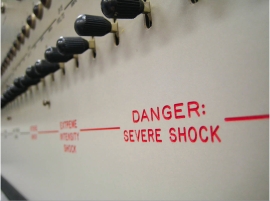We need to talk.
We need to talk about sexism, and racism, and intersectionality, and white feminism, and tone policing and gaslighting, and agency, and men.
Men.
I know some of you mean well, but we really need to talk.
But first, let me talk a bit about white feminism. I am a white feminist. Specifically, I am a white feminist who often rails against the superficiality of most modern white feminism and its complete lack of intersectionality. Specifically, I am a white feminist who will call you out on your implicit racism well before I’ll call you out on your sexism (though where you find one, you will almost certainly find the other), and yes, that means you too, fellow white women.
As you can imagine, this can be a pretty lonely place to exist as my fellow white women and men of all creeds accuse me of stirring up trouble or “exaggerating” systemic oppression. I don’t mind. It’s far more important to my existence to stand up for what’s right than to make people comfortable in the harm they perpetuate.
Maybe I’m radical in your eyes, or maybe I’m just tired of your shit.
But I want to talk about that, too–about “radical” activism and my experience with it. For me, it doesn’t take much to be labeled as radical. Black activists are labeled as radical when they don’t subscribe to the false sense of peace that makes white people feel better about doing nothing in lieu of the active engagement that comes from seeking substantive justice. Women are labeled as radical when they stop coddling the men around them and start speaking plainly to shut down abuse, no matter the -ism they may be calling out at the time.
I call white feminists out on their racist exclusions and white-centric brand of activism all the time…but if I’m being completely honest, I understand where it comes from. I don’t agree with it, and I will continue to speak out LOUDLY against it, but through my own experiences as a feminist, I know exactly why some white women opt to play the white patriarchal game to survive.
Because otherwise, they’re “radical,” they’re alone, and for some, that’s a terrifying place to be.
And do not be mistaken–it is absolutely a game of survival.
Let me tell you a story about my morning and how the doesn’t-take-shit-from-anyone, not-afraid-to-take-on-even-corporate-inequality, unshakable woman who often stands toe-to-toe with you ended up sobbing on the bathroom floor before leaving for work.
Everyone has a breaking point, even if that breaking point only lasts for 32 seconds before she’s up and ready to fight again.
So what exactly broke me? Was it the openly racist, sexist asshole who decided to try nailing me down once again with his schoolyard insults and empty rage? Was it the attempted attacks on my character and my intelligence, or the predictable outbursts thrown in my direction?
No.
It was you.
It was you, progressive men. It was you who didn’t hesitate to criticize my tone and validate a fellow man who was being openly abusive, despite my detailed explanation of the gross amounts of patient labor I had already put into this particular abusive man over the course of YEARS. It was you, progressive men, who having zero historical knowledge going into the exchange, made the decision to put me in my place because I had the audacity to establish a boundary for myself in which I was no longer required to be patient or kind to abusive men.
Sometimes you’ve just gotta call an apple an apple, and a racist a racist. We cannot be shamed into being afraid to call abuse out for what it is.
Maybe you thought you were helping. Maybe you thought appealing to this abusive man might sway his behavior. Maybe you really thought I just hadn’t tried hard enough or been patient for long enough. Maybe you really thought my anger toward this man was rooted solely in his racism, and I was not entitled to that anger as a white woman. Maybe you thought by firmly calling out an openly abusive man, I was likewise being racist (as you later accused me of), while you proceeded to coddle him.
But you see, progressive men–I *told* you why I was angry. I told you about my history with this man and his increasingly targeted racist *and* sexist attacks toward me and a handful of other women who had patiently tried to reach him. You *knew* why I had made the decision to cut off any attempts at productive dialogue with him. It wasn’t up for debate, and yet still, you reinterpreted my messaging for your own narrative.
It was you, progressive men, who removed my agency.
It was you, progressive men, who co-opted my boundaries.
It was you, progressive men, who validated an openly racist and sexist man, who immediately used his new perceived alliance with you to launch continued attacks on me.
Did you at least call him out then, progressive men? Did you balance your attempt to appeal to him with your defense of the woman he was abusing–a woman you actually know?
No. You didn’t. You policed my tone, invalidated my anger, and openly gaslighted me away from my own experiences. You perpetuated the grossly sexist narrative that women aren’t allowed to be angry, which Black women in particular already experience far worse than anyone else.
It was you who undid every single exchange I had ever had with this man, every ounce of labor I had put into him, both patient and otherwise, in a single, centered comment.
You were supposed to be there to support me, and instead you loaded his gun.
It was you, progressive men, who broke me.
We need to talk.







